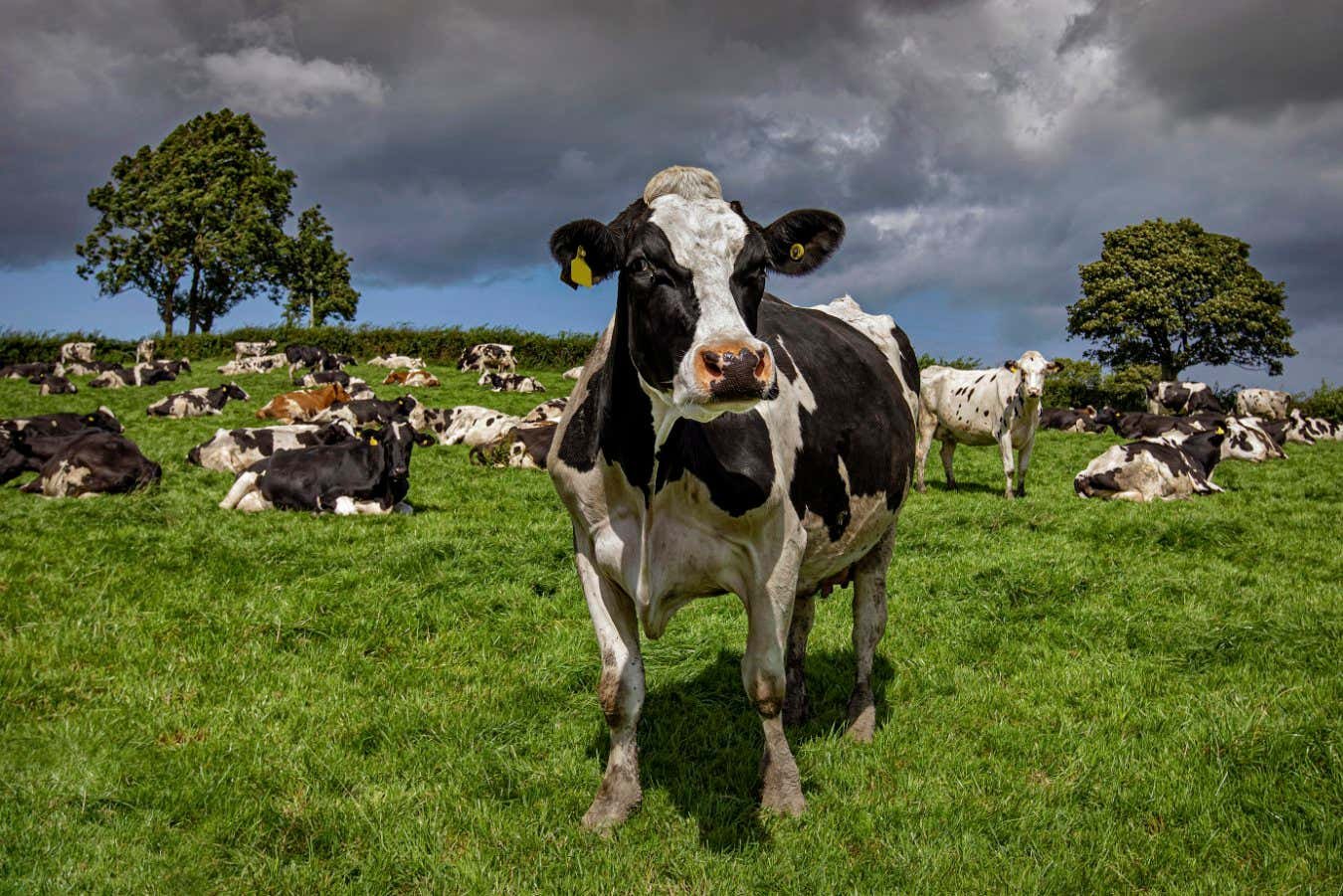
Cattle farming produces large amounts of greenhouse gases
Alan Hopps/Getty Images
With the world’s population growing, the only way to reduce the enormous greenhouse gas emissions from farming is to make food production ever more efficient. Unfortunately, efficiency gains have stalled since 2010, meaning farming emissions – and deforestation – could rise sharply as demand for food continues to grow.
Lin Ma at the Chinese Academy of Sciences in Shijiazhuang and his colleagues reached this conclusion by analysing existing data to estimate greenhouse gas emissions per unit of protein produced between 1961 and 2019. They chose protein rather than calories because it is a better measure of food quality, says Ma.
Between 1961 and around 2010, emissions per unit of protein fell by two-thirds, the team found. But since then, there have been no further improvements and there are even some signs of an increase. Farming is responsible for around a third of all greenhouse gas emissions and demand for food is projected to rise by up to 50 per cent by 2050. If the climate efficiency of farming is no longer improving, this means that emissions from farming will rise by 50 per cent too, the researchers warn.
What’s more, if the efficiency of farming isn’t improving, the only way to increase production is to clear more land for farms, they say, leading to yet more deforestation and loss of biodiversity.
“That would be very bad news. We need to be greatly reducing emissions, not increasing them,” says Richard Waite at the World Resources Institute in Washington DC, who wasn’t involved in the research.
“The ongoing – and even accelerating – expansion of cropland since the turn of the century is extremely concerning because pathways to stay within 1.5°C [of global warming] depend on ending deforestation as soon as possible,” he says.
There are many reasons why climate emissions per unit of protein produced are no longer falling, says Dan Rejto at the Breakthrough Institute, who wasn’t part of the team. One is that people around the world are eating more meat, which is much more greenhouse gas-intensive than plant-based foods.
The fact that large quantities of crops are now turned into fuel rather than food could be another of these drivers, he says. “The rise of crop-based biofuels likely explains some of the slowdown in decarbonisation that the paper finds.” That is because biofuel crops, grown for energy, are chosen for being calorie-heavy rather than protein-rich, reducing their efficiency as measured by Ma’s team.
Another potential driver is the increase in extreme weather, which is affecting yields and food prices around the world. The study didn’t look at this, says Ma. “But I believe the impacts of the extreme weather on crop yields were relatively small before 2019.”
Topics:

Felecia Phillips Ollie DD (h.c.) is the inspiring leader and founder of The Equality Network LLC (TEN). With a background in coaching, travel, and a career in news, Felecia brings a unique perspective to promoting diversity and inclusion. Holding a Bachelor’s Degree in English/Communications, she is passionate about creating a more inclusive future. From graduating from Mississippi Valley State University to leading initiatives like the Washington State Department of Ecology’s Equal Employment Opportunity Program, Felecia is dedicated to making a positive impact. Join her journey on our blog as she shares insights and leads the charge for equity through The Equality Network.




